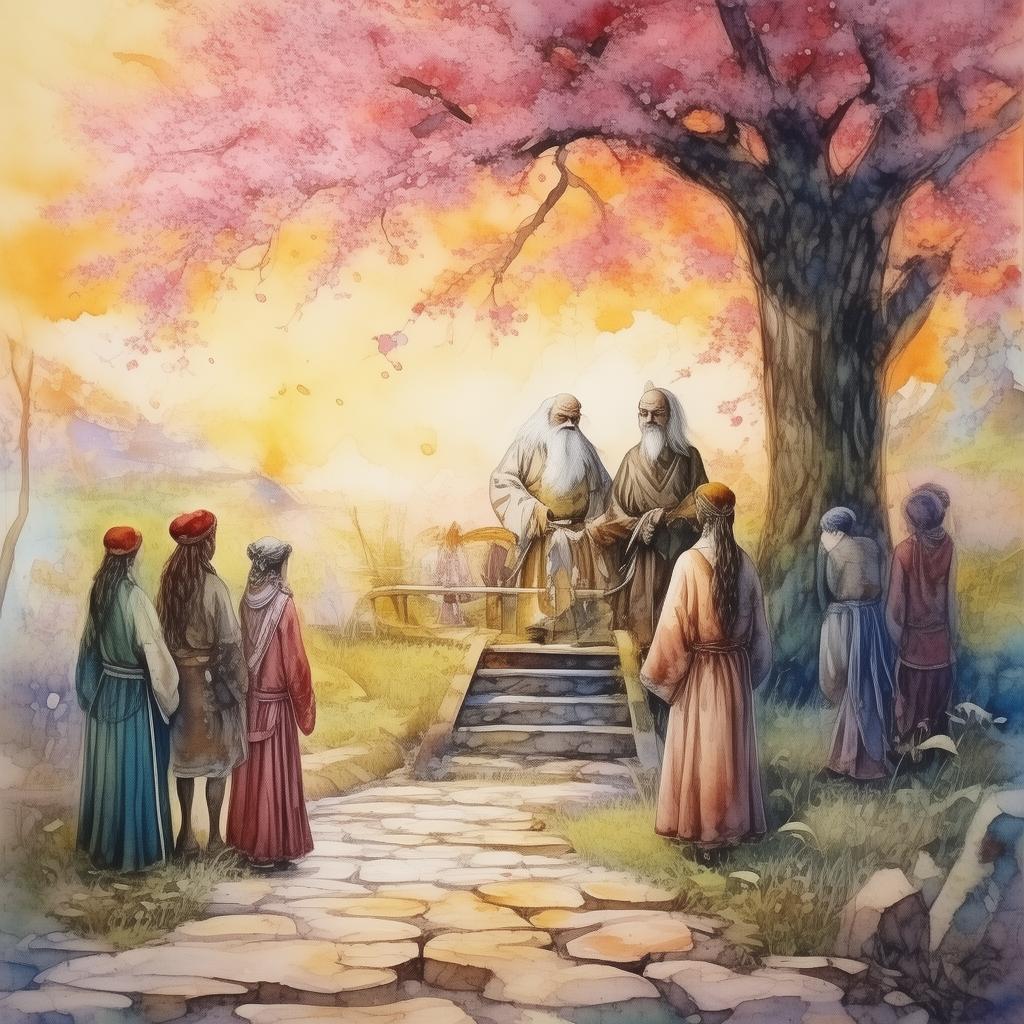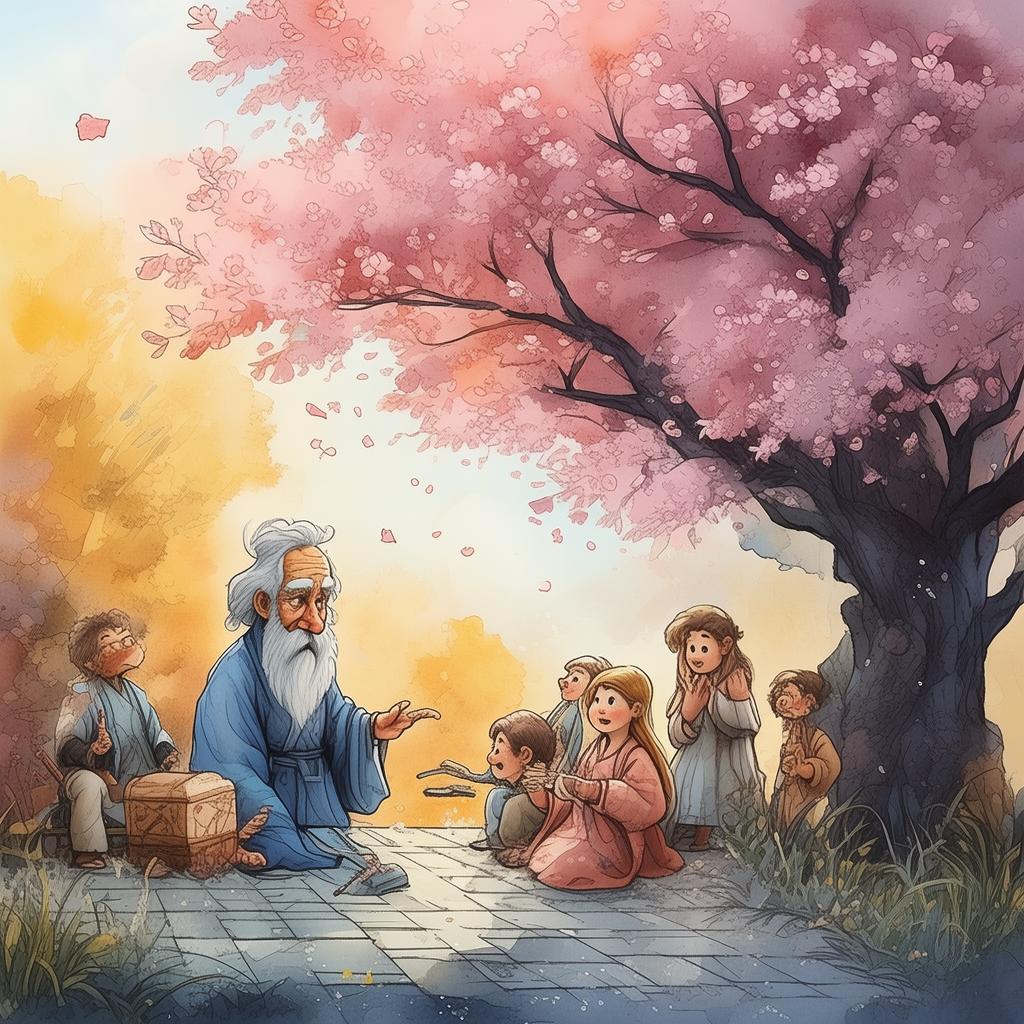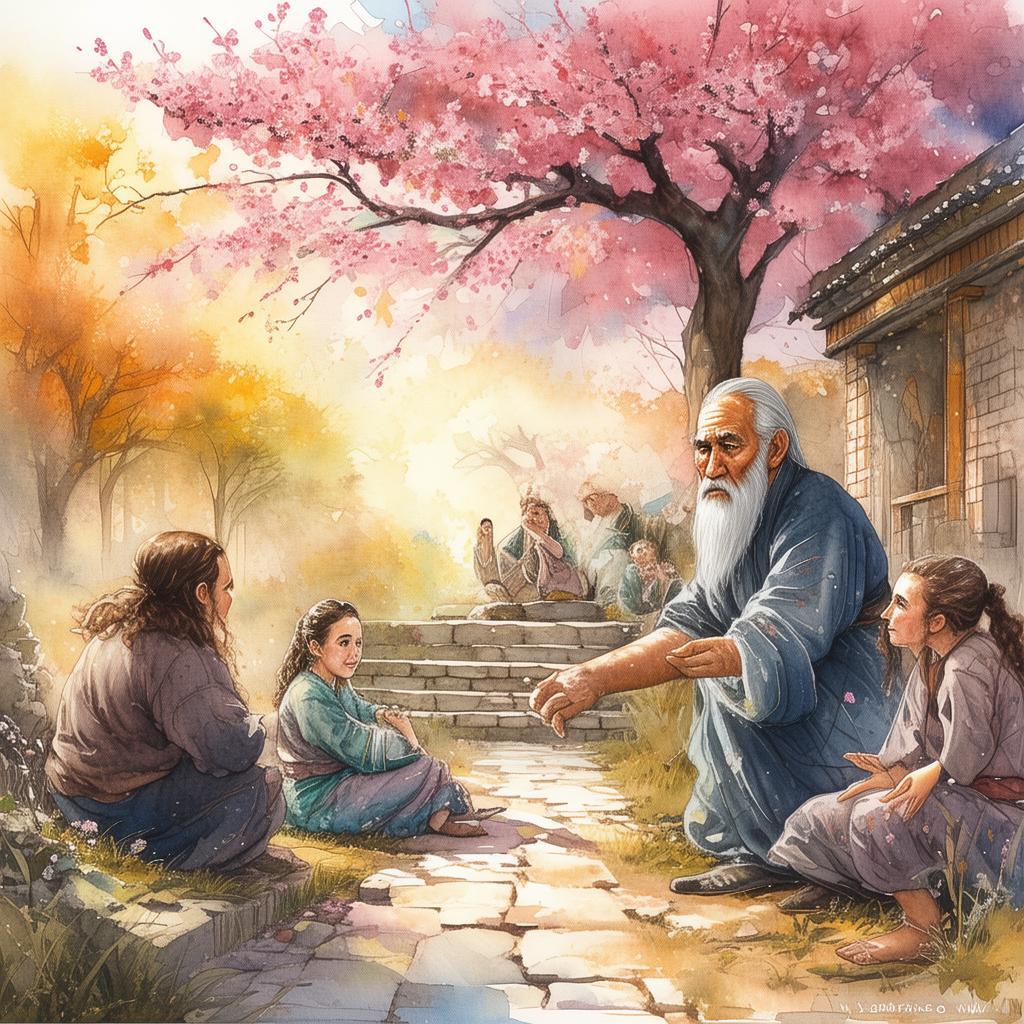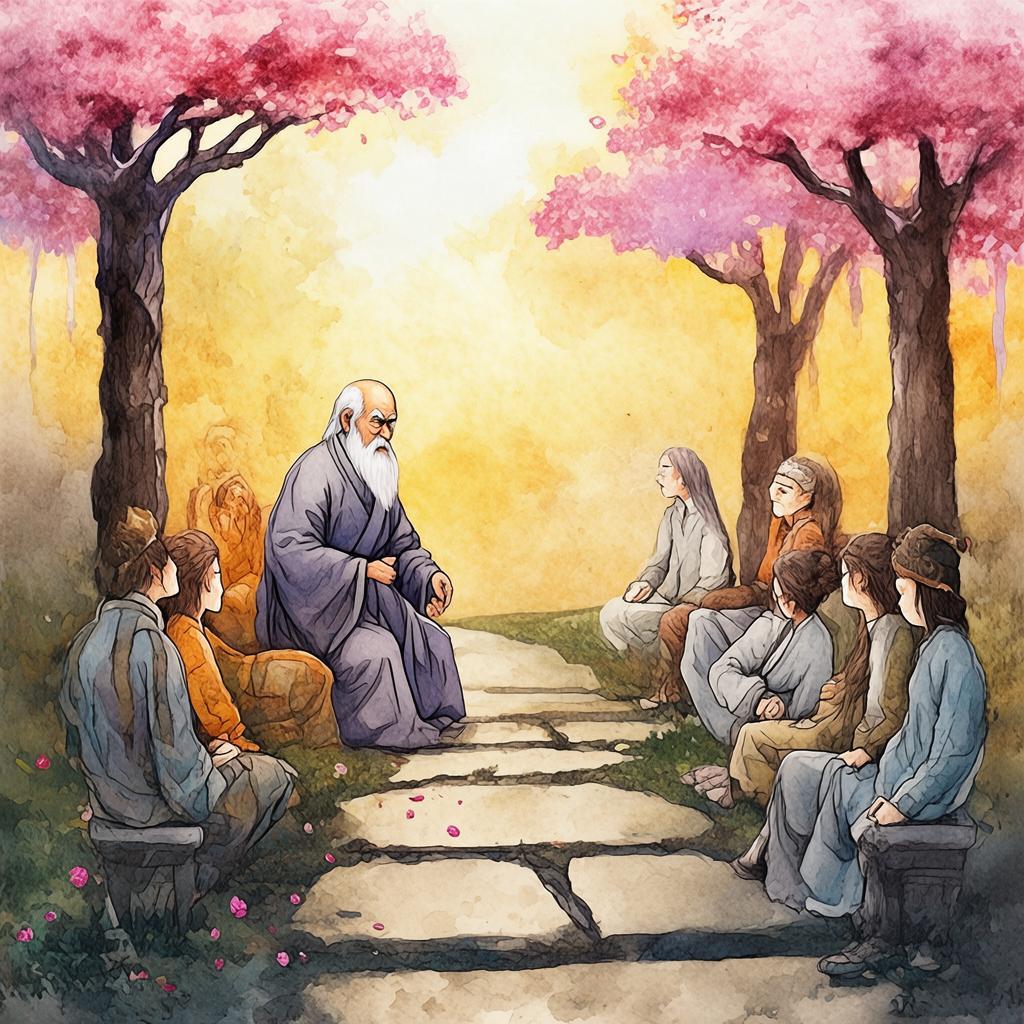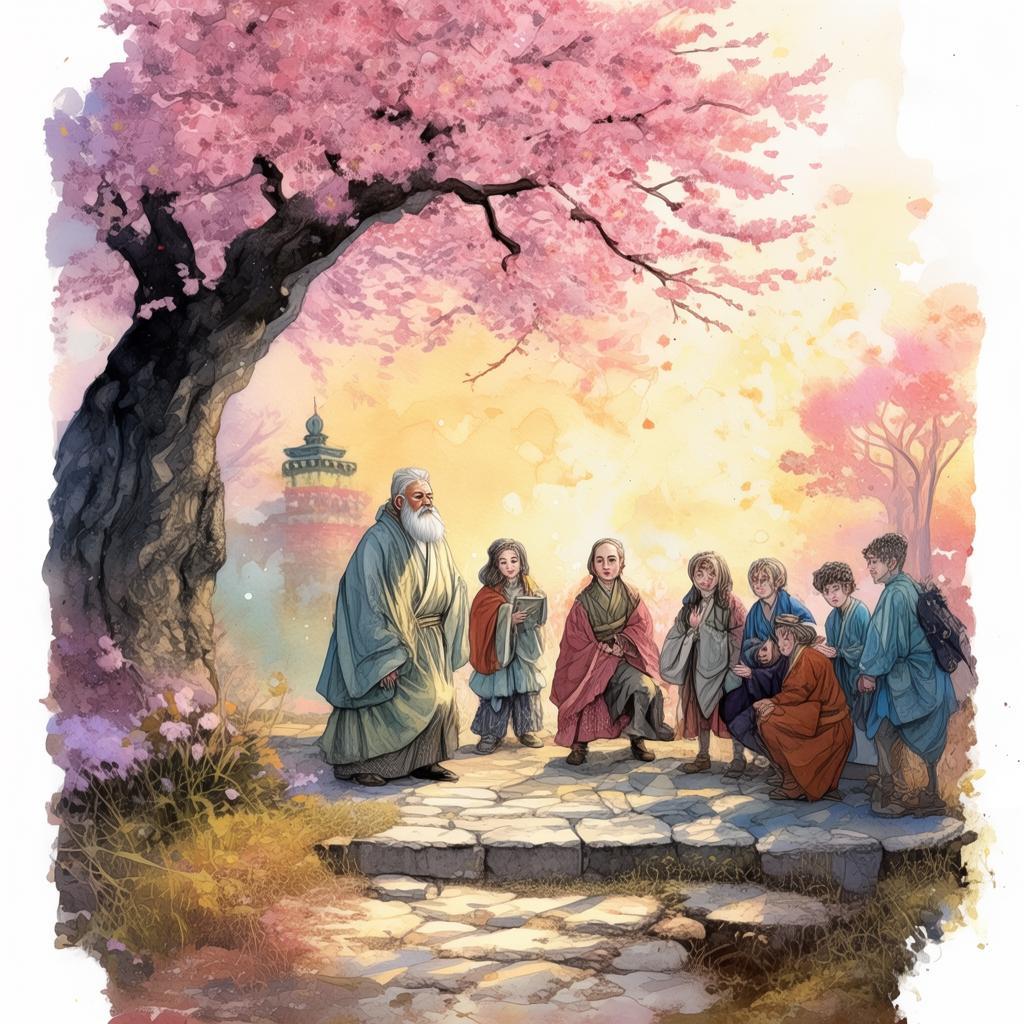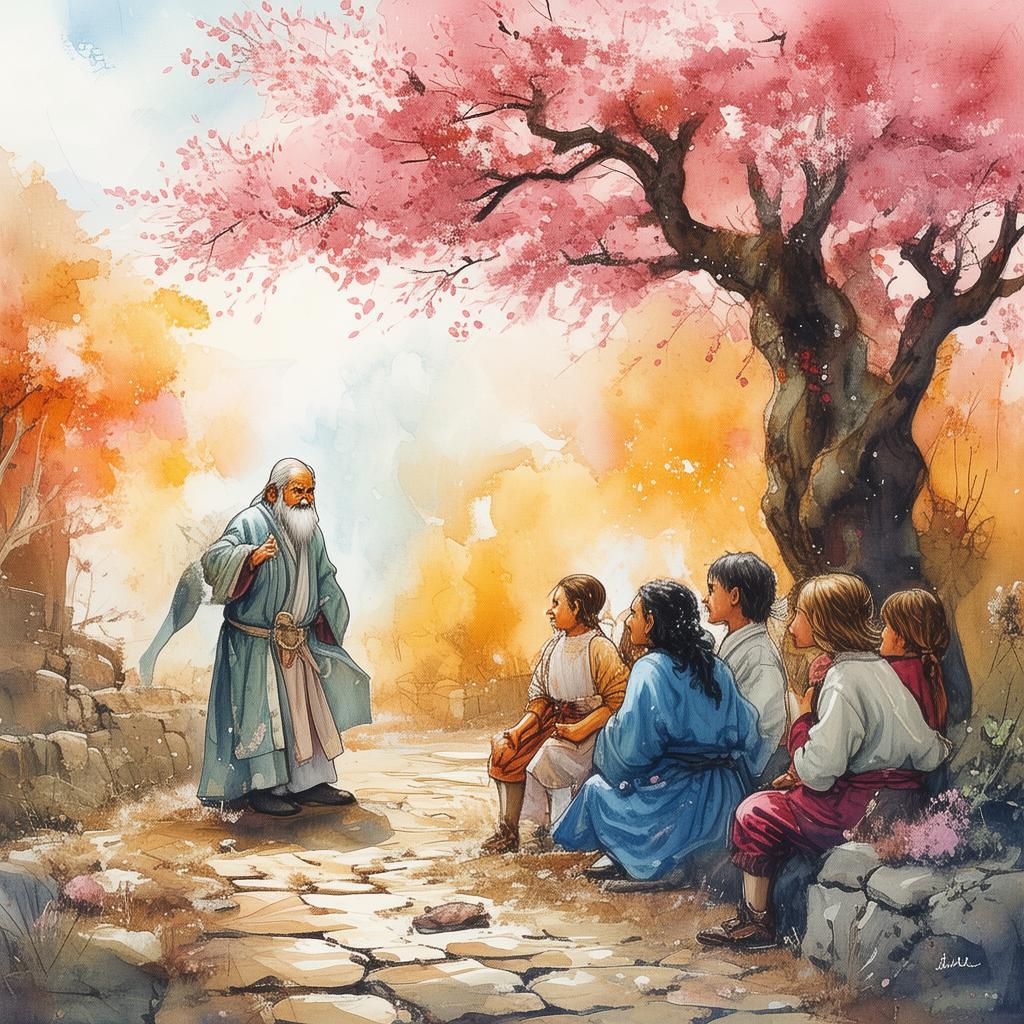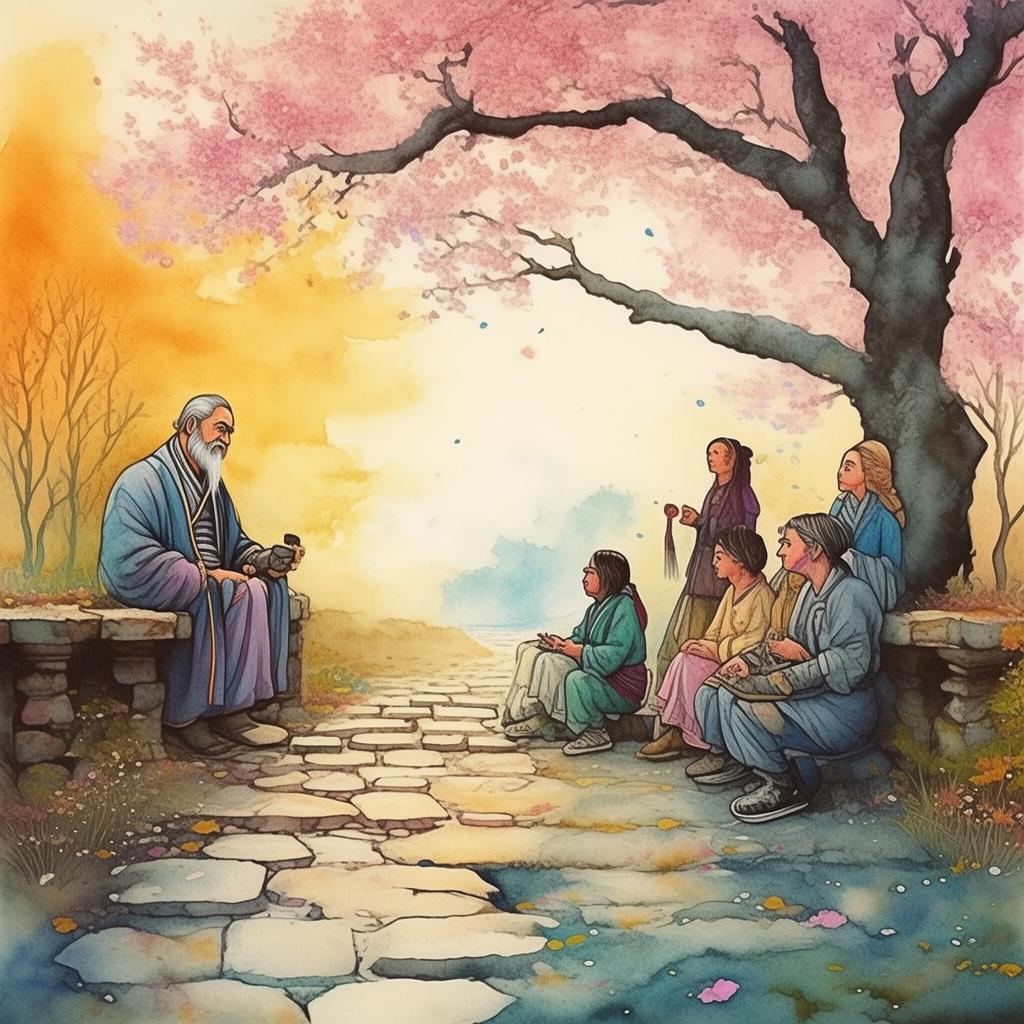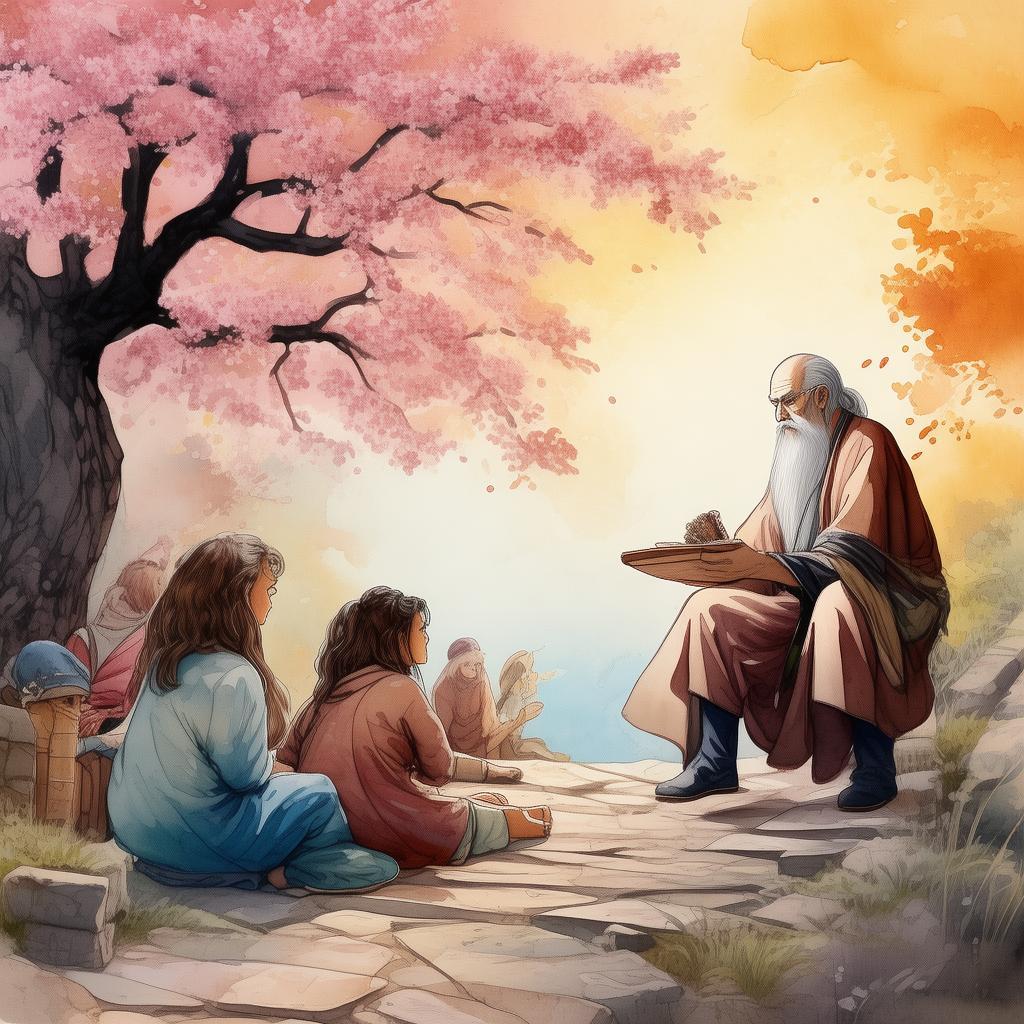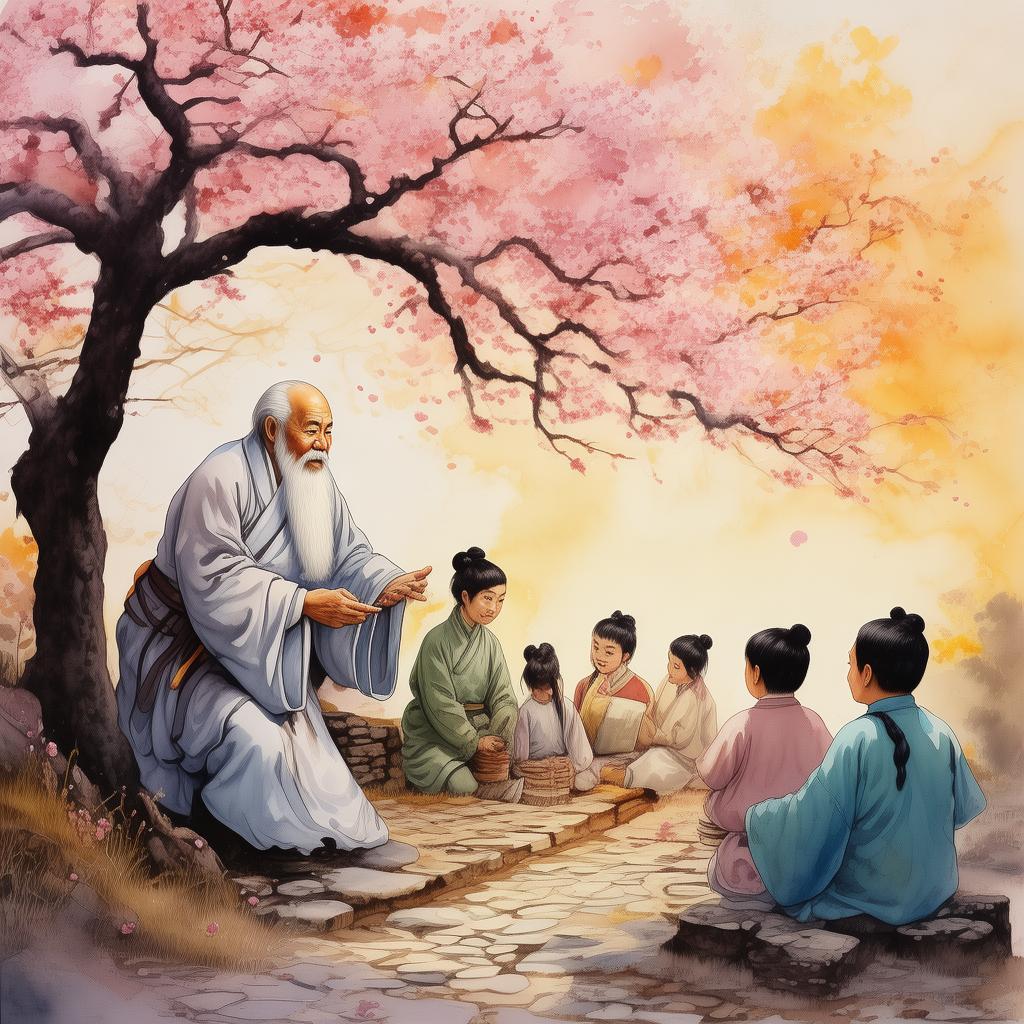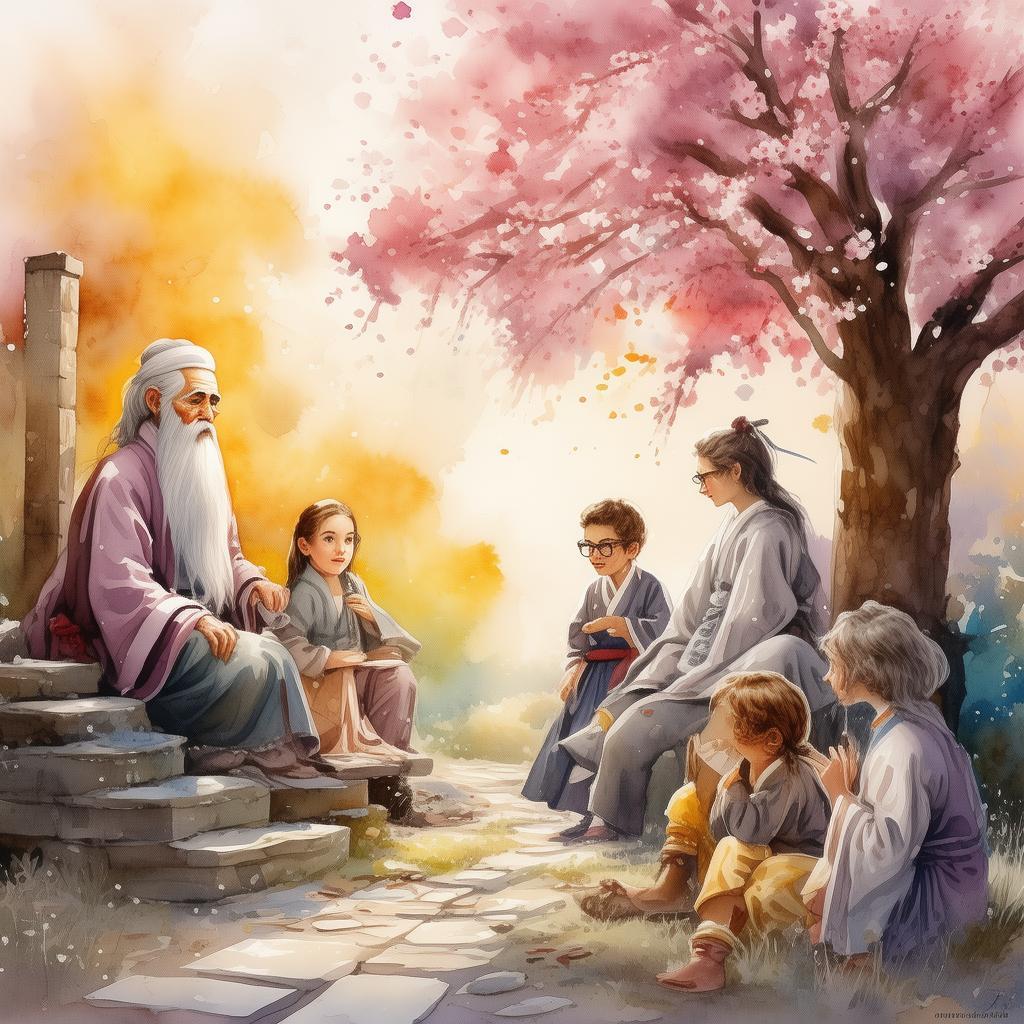Whispers of Revolution: The Joke That Stirred the Masses
In the heart of a repressive regime, where whispers of dissent were met with swift punishment, a sage named Ming lived in obscurity. Ming was known for his wisdom, but it was his sharp wit that had won him the nickname "The Jester of the Oppressed." Though he often dressed in rags and was seen as a fool by many, his words carried the weight of truth and had the power to rouse the spirits of the downtrodden.
One evening, as the moon cast its silvery glow upon the cobblestone streets, Ming stood before a crowd of weary revolutionaries, their faces etched with the fatigue of endless struggle. He cleared his throat, and the crowd fell into a hush, their eyes fixed upon him.
"Ming, what wisdom do you bring us tonight?" a young revolutionary asked, his voice barely above a whisper.
Ming chuckled, a sound that seemed out of place in the tense atmosphere. "I bring you a joke," he replied, his eyes twinkling with mischief.
The crowd exchanged nervous glances, unsure of where this was going. Ming began to speak, his voice calm and measured.
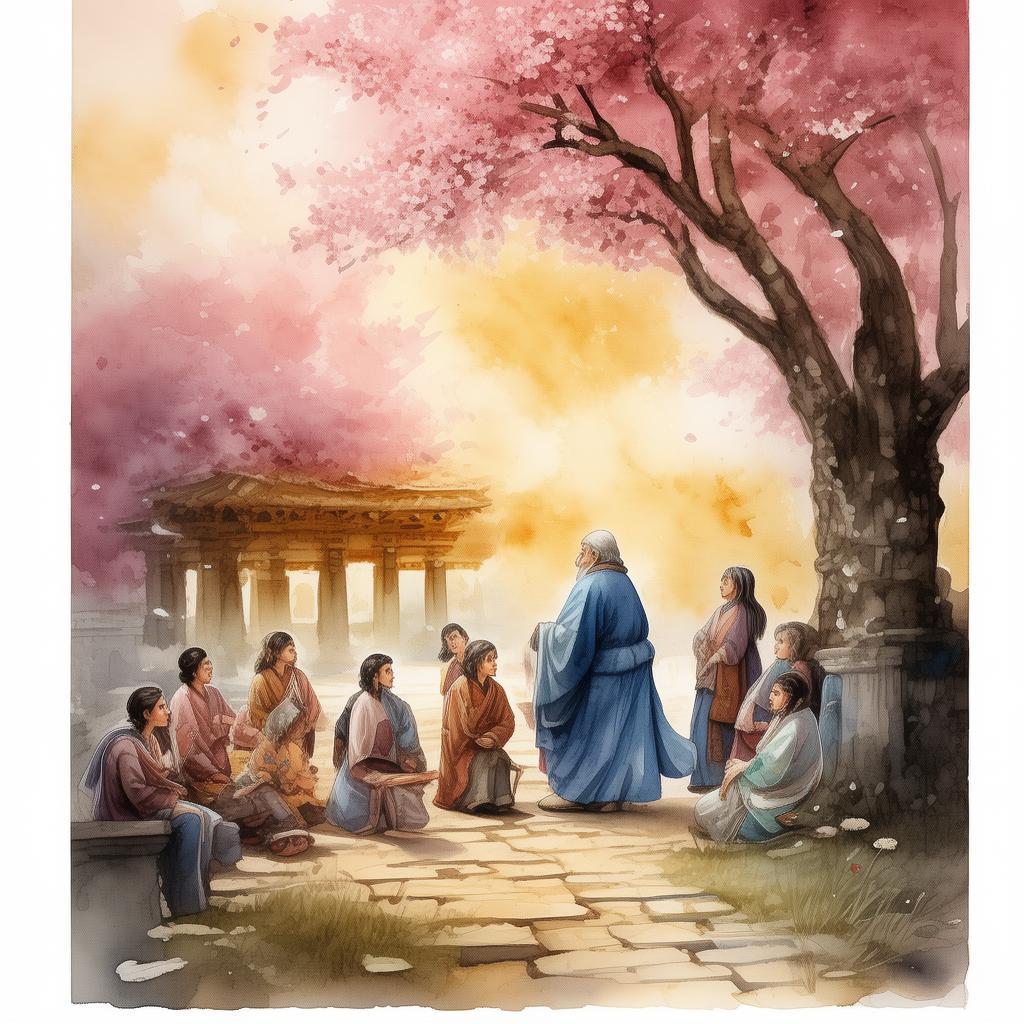
"Once upon a time," he began, "there was a king who loved to hear his people laugh. One day, a jester approached him with a new joke, one that was to change the course of history.
"The joke went like this: 'The king is but a man, and like all men, he is afraid of death. So, why does he rule? Because the people are too afraid to kill him.'
The crowd was silent at first, then laughter began to ripple through the crowd like a wave. Ming had struck a chord, and the revolutionaries, who had long felt their powerlessness, found a moment of levity and solidarity.
The king, who had been listening from a nearby window, was livid. He ordered Ming's arrest, but it was too late. The joke had taken root, and it spread like wildfire among the people. They realized that their fear of the king was a shared one, and with that knowledge, they found the courage to stand up against the oppressive regime.
Ming was thrown into prison, but his spirit was unbroken. From his cell, he continued to whisper tales of hope and resistance. His words, along with the power of the joke, became the propaganda that fueled the revolution.
The revolutionaries fought with renewed vigor, their laughter a constant companion as they clashed with the king's forces. And in the end, the joke that Ming had shared was more than just a jest; it was a symbol of the collective power of the people.
The king, realizing the futility of his rule, abdicated his throne. The revolutionaries, now the new rulers, honored Ming as the sage who had inspired them. They named the revolution "The Joke That Stirred the Masses," a testament to the enduring power of humor and the indomitable spirit of the people.
Ming spent the remainder of his days in the service of the new government, his wisdom and wit guiding the nation through a period of rebuilding. And so, the tale of Ming, the jester turned sage, became a legend, a reminder that sometimes, the smallest act of defiance can ignite the greatest revolution.
The revolutionaries, now the rulers, understood that the power of the people was not to be underestimated. They built a nation where laughter was not just permitted but encouraged, a nation where the spirit of Ming would forever live on.
✨ Original Statement ✨
All articles published on this website (including but not limited to text, images, videos, and other content) are original or authorized for reposting and are protected by relevant laws. Without the explicit written permission of this website, no individual or organization may copy, modify, repost, or use the content for commercial purposes.
If you need to quote or cooperate, please contact this site for authorization. We reserve the right to pursue legal responsibility for any unauthorized use.
Hereby declared.
